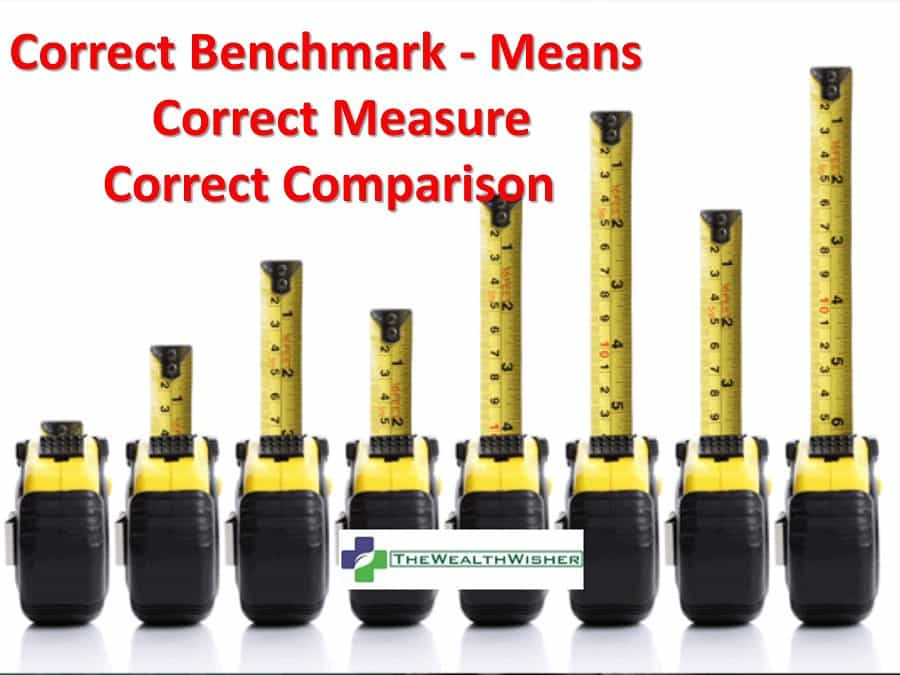We all know performance is a relative term. We ought to have a comparison figure or a mechanism to measure the performance of the asset where we have invested. In mutual funds, these are called Benchmark Indexes. Recently, a fund house changed this to Total Return Index Benchmark. So what is the impact of this change? Is it ideal? Will the performance comparison be more realistic?
Let’s try to know what mutual fund benchmarks are and what Total Return Index is.
| Follow-Up on this Article dated 05/01/2018: SEBI on 04/01/2018 has directed all MFs to bench-mark their schemes against TRI effective 01 Feb 2018. |
First, let us understand what is a Benchmark?
A benchmark is an index (composition of a similar class of assets/or a mix as per objective) against which the performance of a mutual fund can be measured. Since 2012, SEBI made it mandatory for fund houses to declare a benchmark index.
This benchmark is independent, predefined and is based on the similar objectives of fund you are investing. For Eg Most large-cap oriented equity mutual funds have a benchmark – Sensex or the Nifty. Other benchmarks are CNX Midcap, CNX Smallcap, S&P BSE 200, etc.
Hence, an investor in an equity mutual fund benchmarked against the CNX Midcap should compare his performance with mid caps only.
Debt funds and even gold funds have benchmarks too. Sometimes 2-3 benchmarks are used together is a defined ratio for funds which have multiple assets. For eg Axis Income Saver Fund benchmarks itself with CRISIL Blended MIP Index which is a blend of the Nifty 50 Index (15%) and CRISIL Composite Bond Fund Index (85%).
What is Total Return Index?
To know Total Return Index, you have to what are the ways equity returns are derived.
Equity or Shares have 2 kinds of returns broadly:
- Capital Appreciation: The price appreciation of a share make you gain capital appreciation. For eg a share purchased at Rs 100 is Rs 115 in 3 months the capital appreciation is 15% in a quarter or 60% pa.
- Dividends: Equity shares also share part of profits in form of dividends. These are funds distributed per share. Normally in India, this yield is around 1-2% per year on an average. It depends on companies what kind of income they want to share.
Other incomes may include interest, right offerings, and other distributions.
Now a normal Index only tracks capital appreciation. For eg Sensex only rises when the market price of its 30 stocks rises. It does not consider other incomes which are significant too. So this shortcoming is solved with the use of Total Return Index.
As per Wikipedia – A total return index (TRI) is different from a price index. A price index only considers price movements (capital gains or losses) of the securities that make up the index, while a total return index includes dividends, interest, rights offerings and other distributions realized over a given period of time. Looking at an index’s total return is usually considered a more accurate measure of performance.

The Standard & Poor’s 500 Index (S&P 500) is one example of a total return index.
Soon now MFs in India will follow it here. There was only one Mutual Fund -Quantum which, was following this process since inception. Now DSP Blackrock MF has declared its intention to benchmark its equity fund with Total Return Indexes.
Meanwhile BS did a research on the impact using the AMFI performance data. Result: Number of funds beating the benchmark got reduced.

Implication
The current benchmarks are inflating their performance in absence of a practical benchmark. It fact the securities are making more money but if you do not add dividend yield (1-2% average per year, so compounding it for say 10 -20 years will be a huge figure), you are not showing actual returns.
This can be explained in this picture:

The markets regulator Securities and Exchange Board of India (SEBI) has also expressed its desire that MF industry benchmark the returns of its equity schemes against a total return index.

This would diminish the alpha generated by schemes but will help investors assess the returns better.
Total return determines an investment’s true growth over time. It is important to evaluate any fund’s performance against its total return benchmark to get the right perspective on the fund’s relative performance.
So although it is a start by one fund house, soon many will follow it or SEBI would dictate that fund house should follow this practice.
So welcome this new practice of a pragmatic benchmarking.
Hope you liked this article and will help you evaluate your investments in a better way.
Share your thoughts and this article to make this world more informed – more ready.










